
Prof. Chunaram Choudhary
Professor & Group Leader
EMBO YIP fellow
[email protected]
Chuna carried out his doctoral studies at the University of Münster in Germany and his postdoctoral training at the same university as well as at the Max Planck Institute for Biochemistry in Martinsried, Germany. In 2009, he became a Group Leader at the Novo Nordisk Foundation Center for Protein Research, University of Copenhagen. In 2013 he was appointed a professor in proteomics and cell signaling at the same institute. Chuna is interested in investigating the dynamics of protein posttranslational modifications, in particular of lysine acetylation and ubiquitylation, in cell signaling networks using quantitative mass spectrometry-based approaches.
Since 2013: Professor and group leader, the NNF Center for Protein Research, University of Copenhagen, Denmark
2009- 2013: Associate professor and group leader, the NNF Center for Protein Research, University of Copenhagen, Denmark
2007- 2009: Postdoctoral fellow, Department of Proteomics and Signal Transduction, Max Planck Institute for Biochemistry, Martinsried, Munich, Germany (under supervision of Prof. Dr. Matthias Mann)
2001- 2006: PhD student, 2006 –2007: Postdoctoral fellow at Department of Hematology/Oncology, University of Münster, Münster, Germany (under supervision of Prof. Dr. Hubert Serve)
Fellowships, prizes and awards
2015. ERC Consolidator grant from the European Research Council
2014. Junior Researcher Prize from the Danish Cancer Society
2014. Hallas Møller Investigator grant from the Novo Nordisk Foundation
2013. EMBO Young Investigator
2012. Sapere Aude research grant from the Danish Research Council
2009. Artur Pappenheim Prize from the German Society of Hematology and Oncology
2007. Postdoctoral fellowship from the Max Planck Society
2000. PhD fellowship from the Council of Scientific and Industrial Research (CSIR)

Brian Weinert
Associate Professor
[email protected]
Brian obtained his PhD in December 2006 from the University of California, Berkeley where he used biochemical, cell, and molecular methods to study P element transposition, DNA repair, and the Blooms syndrome helicase. He fled academia and moved to Denmark in 2007, where he spent two years as a research scientist at DanDrit biotech, a small company that developed immune therapy for cancer using dendritic cells. In 2009 he fled biotech and returned to academia as postdoctoral researcher in the group of Chunaram Choudhary. In mass spectrometry-based proteomics Brian has found his calling. His work has focused on unravelling the mechanisms and fundamental properties of lysine acetylation. He is interested in developing and applying quantitative proteomics strategies to investigate the basic properties of acetylation and other similar modifications. In April 2015 Brian was promoted to an Associate Professor (senior scientist) position in the Choudhary group.
Since 2015: Associate professor at the Novo Nordisk Foundation Center for Protein Resarch, University of Copenhagen, Denmark.
2009- 2015: Postdoctoral fellow at the Novo Nordisk Foundation Center for Protein Resarch, University of Copenhagen, Denmark.
2007-2009: Research Scientist at DanDrit Biotech, Copenhagen, Denmark.
PhD student at the University of California Berkley, USA.
Publications [Google Scholar]
Weinert BT*, Narita T*, Satpathy S, Srinivasan B, Hansen BK, Schölz C, Hamilton W, Zucconi BE, Wang W, Liu W, Brickman J, Kesicki EA, Lai A, Bromberg KD, Cole PA, Choudhary C. Time-resolved analysis reveals rapid dynamics and broad scope of the CBP/p300 acetylome. Cell. 2018 May 14. pii: S0092-8674(18)30526-9. [Article][Pubmed]
Hogrebe A, von Stechow L, Bekker-Jensen DB, Weinert BT, Kelstrup CD, Olsen JV. Benchmarking common quantification strategies for large-scale phosphoproteomics. Nat Commun. 2018 Mar 13;9(1):1045[Article][Pubmed]
Lasko LM, Jakob CG, Edalji RP, Qiu W, Montgomery D, Digiammarino EL, Hansen TM, Risi RM, Frey R, Manaves V, Shaw B, Algire M, Hessler P, Lam LT, Uziel T, Faivre E, Ferguson D, Buchanan FG, Martin RL, Torrent M, Chiang GG, Karukurichi K, Langston JW, Weinert BT, Choudhary C, de Vries P, Van Drie JH, McElligott D, Kesicki E, Marmorstein R, Sun C, Cole PA, Rosenberg SH, Michaelides MR, Lai A, Bromberg KD. Discovery of a selective catalytic p300/CBP inhibitor that targets lineage-specific tumours. Nature. 2017 Oct 5;550(7674):128-132[Article][Pubmed]
Weinert BT, Choudhary C, Hansen BK Accurate measurement of acetylation stoichiometry by quantitative MS. MOLECULAR & CELLULAR PROTEOMICS. 2017 May;16(5):759-769[Article][Pubmed]
Weinert BT*, Satpathy S*, Hansen BK, Lyon D, Jensen LJ, Choudhary C. Accurate quantification of site-specific acetylation stoichiometry reveals the impact of sirtuin deacetylase CobB on the E. coli acetylome. Mol Cell Proteomics. 2017 May;16(5):759-769[Article][Pubmed]
Schoelz C, Weinert BT , Wagner S, Beli P, Miyake Y, Qi J, Jensen L, Streicher W, McCarthy A, Westwood N, Lain S. Insigths into the acetylation pattern of HDAC inhibitors and their potential role in HIV therapy. RETROVIROLOGY. 2016 Sep 26 (Vol. 13)
Starnes LM, Su D, Pikkupeura LM, Weinert BT, Santos MA, Mund A, Soria R, Cho YW, Pozdnyakova I, Højfeldt MK, Vala A, Yang W, López-Méndez B, Lee JE, Peng W, Yuan J, Ge K, Montoya G, Nussenzweig A, Choudhary C, Daniel JA. A PTIP–PA1 subcomplex promotes transcription for IgH class switching independently from the associated MLL3/MLL4 methyltransferase complex. Genes & Development. 2016 30.2 149-163.[Article][Pubmed]
Weinert BT, Moustafa T, Iesmantavicius V, Zechner R, Choudhary C. Analysis of acetylation stoichiometry suggests that SIRT3 repairs nonenzymatic acetylation lesions. EMBO J. 2015 Nov 3;34(21):2620-32. [Article][Pubmed]
Schölz C, Lyon D, Refsgaard JC, Jensen LJ, Choudhary C,Weinert BT. Avoiding abundance bias in the functional annotation of post-translationally modified proteins. Nature methods. 2015 Nov;12(11):1003.[Article][Pubmed]
Schölz C, Weinert BT, Wagner SA, Beli P, Miyake Y, Qi J, Jensen LJ, Streicher W, McCarthy AR, Westwood NJ, Lain S, Cox J, Matthias P, Mann M, Bradner JE, Choudhary C. Acetylation site specificities of lysine deacetylase inhibitors in human cells. Nat Biotechnol. 2015 Apr;33(4):415-23.[Article][Pubmed]
Gibbs-Seymour I, Oka Y, Rajendra E, Weinert BT, Passmore LA, Patel KJ, Olsen JV, Choudhary C, Bekker-Jensen S, Mailand N. Ubiquitin-SUMO circuitry controls activated fanconi anemia ID complex dosage in response to DNA damage. Mol Cell. 2015 Jan 8;57(1):150-64.[Article][Pubmed]
Choudhary C, Weinert BT, Nishida Y, Verdin E, Mann M. The growing landscape of lysine acetylation links metabolism and cell signalling. Nat Rev Mol Cell Biol. 2014 Aug;15(8):536-50.[Article][Pubmed]
Iesmantavicius V, Weinert BT, Choudhary C. Convergence of ubiquitylation and phosphorylation signaling in rapamycin-treated yeast cells. Mol Cell Proteomics. 2014 Aug;13(8):1979-92.[Article][Pubmed]
Weinert BT, Iesmantavicius V, Moustafa T, Schölz C, Wagner SA, Magnes C, Zechner R, Choudhary C. Acetylation dynamics and stoichiometry in Saccharomyces cerevisiae. Mol Syst Biol. 2014 Jan 30;10:716.[Article][Pubmed]
Weinert BT, Schölz C, Wagner SA, Iesmantavicius V, Su D, Daniel JA, Choudhary C. Lysine succinylation is a frequently occurring modification in prokaryotes and eukaryotes and extensively overlaps with acetylation. Cell Rep. 2013 Aug 29;4(4):842-51.[Article][Pubmed]
Weinert BT, Iesmantavicius V, Wagner SA, Schölz C, Gummesson B, Beli P, Nyström T, Choudhary C. Acetyl-phosphate is a critical determinant of lysine acetylation in E. coli. Mol Cell. 2013 Jul 25;51(2):265-72.[Article][Pubmed]
Sol EM, Wagner SA, Weinert BT, Kumar A, Kim HS, Deng CX, Choudhary C. Proteomic investigations of lysine acetylation identify diverse substrates of mitochondrial deacetylase sirt3. PLoS One. 2012;7(12):e50545.[Article][Pubmed]
Lundby A, Lage K, Weinert BT, Bekker-Jensen DB, Secher A, Skovgaard T, Kelstrup CD, Dmytriyev A, Choudhary C, Lundby C, Olsen JV. Proteomic analysis of lysine acetylation sites in rat tissues reveals organ specificity and subcellular patterns. Cell Rep. 2012 Aug 30;2(2):419-31.[Article][Pubmed]
Henriksen P, Wagner SA, Weinert BT, Sharma S, Bacinskaja G, Rehman M, Juffer AH, Walther TC, Lisby M, Choudhary C. Proteome-wide analysis of lysine acetylation suggests its broad regulatory scope in Saccharomyces cerevisiae. Mol Cell Proteomics. 2012 Nov;11(11):1510-22.[Article][Pubmed]
Wagner SA, Beli P, Weinert BT, Schölz C, Kelstrup CD, Young C, Nielsen ML, Olsen JV, Brakebusch C, Choudhary C. Proteomic analyses reveal divergent ubiquitylation site patterns in murine tissues. Mol Cell Proteomics. 2012 Dec;11(12):1578-85.[Article][Pubmed]
Beli P, Lukashchuk N, Wagner SA, Weinert BT, Olsen JV, Baskcomb L, Mann M, Jackson SP, Choudhary C. Proteomic investigations reveal a role for RNA processing factor THRAP3 in the DNA damage response. Mol Cell. 2012 Apr 27;46(2):212-25.[Article][Pubmed]
Wagner SA, Beli P, Weinert BT, Nielsen ML, Cox J, Mann M, Choudhary C. A proteome-wide, quantitative survey of in vivo ubiquitylation sites reveals widespread regulatory roles. Mol Cell Proteomics. 2011 Oct;10(10):M111.013284.[Article][Pubmed]
Weinert BT, Wagner SA, Horn H, Henriksen P, Liu WR, Olsen JV, Jensen LJ, Choudhary C. Proteome-wide mapping of the Drosophila acetylome demonstrates a high degree of conservation of lysine acetylation. Sci Signal. 2011 Jul 26;4(183):ra48.[Article][Pubmed]
Kaidi A, Weinert BT, Choudhary C, Jackson SP. Human SIRT6 promotes DNA end resection through CtIP deacetylation. Science. 2010 Sep 10;329(5997):1348-53.[Article][Pubmed]
Weinert BT, Krishnadath KK, Milano F, Pedersen AW, Claesson MH, Zocca MB. Real-time PCR analysis of genes encoding tumor antigens in esophageal tumors and a cancer vaccine. Cancer Immun. 2009 Oct 9;9:9.[Article][Pubmed]
Weinert BT, Rio DC. DNA strand displacement, strand annealing and strand swapping by the Drosophila Bloom's syndrome helicase. Nucleic Acids Res. 2007;35(4):1367-76.[Article][Pubmed]
Weinert BT, Min B, Rio DC. P element excision and repair by non-homologous end joining occurs in both G1 and G2 of the cell cycle. DNA Repair (Amst). 2005 Feb 3;4(2):171-81.[Article][Pubmed]
Min B, Weinert BT, Rio DC. Interplay between Drosophila Bloom's syndrome helicase and Ku autoantigen during nonhomologous end joining repair of P element-induced DNA breaks. Proc Natl Acad Sci U S A. 2004 Jun 15;101(24):8906-11.[Article][Pubmed]
Brodsky MH, Weinert BT, Tsang G, Rong YS, McGinnis NM, Golic KG, Rio DC, Rubin GM. Drosophila melanogaster MNK/Chk2 and p53 regulate multiple DNA repair and apoptotic pathways following DNA damage. Mol Cell Biol. 2004 Feb;24(3):1219-31.[Article][Pubmed]

Rajat Gupta
Assistant Professor
[email protected]
Rajat was born and brought up in New Delhi, India and did his Masters in Biotechnology from the Indian Institute of Technology (IIT)-Bombay (India). For his Masters’ dissertation, he worked on elucidating the role of glycation of tau protein in protein misfolding in Alzheimer’s disease. Subsequently, he joined Prof. Ulrich Hartl´s laboratory the Max Planck Institute of Biochemistry (Munich, Germany) to pursue PhD. During his doctoral studies, he developed novel sensors based on firefly luciferase enzyme to measure changes in protein homeostasis in a wide range of experimental systems, including cell and organisms model of stress, neurodegenerative disease, and aging. His work has also uncovered a new role of DnaJB1 chaperone in delivering cytosolic misfolded proteins to the nucleus for degradation and has facilitated our understanding about how different components of the protein quality control machinery participate with each other to shape and remodel cellular proteome under different conditions. Rajat is interested in investigating ubiquitylation signaling using cell biology and proteomics technologies.
Since Dec 2013: Postdoctoral fellow at the Novo Nordisk Foundation Center for Protein Research, University of Copenhagen, Denmark
Aug 2008- Nov 2012: PhD in Cellular Biochemistry, the Max Planck Institute of Biochemistry (Munich, Germany).
Jul 2006- Aug 2008: MSc in Biotechnology, Indian Institute of Technology (IIT) - Bombay, (Mumbai, India).
July 2003- June 2006: BSc Honors in Biochemistry, University of Delhi (New Delhi, India).
Publications [Google Scholar]
Gupta R , Somyajit K, Narita T, Maskey E, Stanlie A, Kremer M, Typas D, Lammers M, Mailand N, Nussenzweig A, Lukas J, Choudhary C. DNA Repair Network Analysis Reveals Shieldin as a Key Regulator of NHEJ and PARP Inhibitor Sensitivity. Cell. 2018 May 3;173(4):972-988.e23.[Article][Pubmed]
Somyajit K, Gupta R , Sedlackova H, Neelsen KJ, Ochs F, Rask MJ, Choudhary C, Lukas J Redox-sensitive alteration of replisome architecture safeguards genome integrity. Science. 2017 Nov 10;358(6364):797-802.[Article][Pubmed]
Thanh Nguyen H, Andrejeva D, Gupta R, Choudhary C, Hong X, Eichhorn PJ, Loya AC, Cohen SM. Deubiquitylating enzyme USP9x regulates hippo pathway activity by controlling angiomotin protein turnover. Cell Discov. 2016 Mar 29;2:16001. [Article][Pubmed]
Satpathy S, Wagner SA, Beli P, Gupta R, Kristiansen T, Malinova D, Francavilla C, Tolar P, Bishop GA, Hostager BS, Choudhary C. Systems-wide analysis of BCR signalosomes and downstream phosphorylation and ubiquitylation. Mol Syst Biol. 2015 Jun 2;11(6):810.[Article][Pubmed]
Park SH, Kukushkin Y, Gupta R, Chen T, Konagai A, Hipp MS, Hayer-Hartl M, Hartl FU. PolyQ proteins interfere with nuclear degradation of cytosolic proteins by sequestering the Sis1p chaperone. Cell. 2013 Jul 3;154(1):134-45.[Article][Pubmed]
Gupta R, Kasturi P, Bracher A, Loew C, Zheng M, Villella A, Garza D, Hartl FU, Raychaudhuri S. Firefly luciferase mutants as sensors of proteome stress. Nat Methods. 2011 Sep 4;8(10):879-84.[Article][Pubmed]
Fellowships
EMBO long-term postdoctoral fellowship (2014-2016)
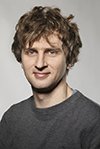
Thomas Wild
Post-Doctoral Fellow
[email protected]
Thomas studied Biochemistry at the University of Regensburg and subsequently obtained his PhD from the ETH Zurich. During his PhD thesis in the group of Prof. Ulrike Kutay, Thomas mainly used microscopy-based high throughput RNAi screening to unravel how ribosomes are produced in human cells. Thereafter, Thomas joined the lab of Prof. Patrick Cramer at the LMU Munich to apply similar techniques to study how multi-subunit RNA polymerases are assembled. Since 2013, Thomas works as a Postdoc in the lab of Prof. Chuna Choudhary combining systems-wide quantitative mass spectrometry-based analysis of the human ubiquitin systems with latest genome editing techniques.
Since 2013: Postdoc fellow at the Novo Nordisk Foundation Center for Protein Resarch, University of Copenhagen, Denmark.
PhD student at the ETH, Zurich, Switzerland
Diploma in Biochemistry, University of Regensburg, Germany
Publications
Wild T, Budzowska M, Karemore G, Choudhary C Higher eukaryote-specific APC/C composition is a determinant of spindle assembly checkpoint importance. bioRxiv. 2017.[Article]
Wild T*, Larsen SY*, Narita T, Schou J, Nilsson J, Choudhary C. The spindle assembly checkpoint is not essential for viability of human cells with genetically lowered APC/C activity. Cell Rep. 2016 Mar 1;14(8):1829-40.[Article][Pubmed]
Thorslund T*, Ripplinger A*, Hoffmann S*, Wild T*, Uckelmann M, Villumsen B, Narita T, Sixma TK, Choudhary C, Bekker-Jensen S, Mailand N. Histone H1 couples initiation and amplification of ubiquitin signalling after DNA damage. Nature. 2015 Nov 19;527(7578):389-93.[Article][Pubmed]
Wild T, Cramer P. Biogenesis of multisubunit RNA polymerases. Trends Biochem Sci. 2012 Mar;37(3):99-105.[Article][Pubmed]
Wild T, Horvath P, Wyler E, Widmann B, Badertscher L, Zemp I, Kozak K, Csucs G, Lund E, Kutay U. A protein inventory of human ribosome biogenesis reveals an essential function of exportin 5 in 60S subunit export. PLoS Biol. 2010 Oct 26;8(10):e1000522.[Article][Pubmed]
Zemp I, Wild T, O'Donohue MF, Wandrey F, Widmann B, Gleizes PE, Kutay U. Distinct cytoplasmic maturation steps of 40S ribosomal subunit precursors require hRio2. J Cell Biol. 2009 Jun 29;185(7):1167-80.[Article][Pubmed]
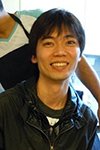
Takeo Narita
Post-Doctoral Fellow
[email protected]
Takeo studied medicine at the Kyoto University. After 2 years' work as an intern, he enroled for a PhD program at the Kyoto University under the supervision of Prof. Shunichi Takeda. During his PhD he studied the bypass capability of human replicative DNA polymerase delta across the UV damaged sites, the role of XPF, a structure-specific nuclease, on the DNA double strand break repair, and the differential role of ubiquitin ligases RNF8 and RNF168. In June 2014 he joined Prof. Chuna Choudhary´s group and currently he is applying quantitative proteomics to study protein-protein interactions.
Since June 2014: Postdoctoral fellow at the Novo Nordisk Foundation Center for Protein Research, University of Copenhagen, Denmark
April 2009 - March 2014: PhD student at the graduate school of medicine, University of Kyoto, Japan.
April 2007 - March 2009: Medical internship at the Honjo Daiichi hospital, Japan.
April 2000 - March 2007: Medical student, the University of Kyoto, Japan
Publications [Google Scholar]
Weinert BT*, Narita T*, Satpathy S, Srinivasan B, Hansen BK, Schölz C, Hamilton W, Zucconi BE, Wang W, Liu W, Brickman J, Kesicki EA, Lai A, Bromberg KD, Cole PA, Choudhary C. Time-resolved analysis reveals rapid dynamics and broad scope of the CBP/p300 acetylome Cell. 2018 May 14. pii: S0092-8674(18)30526-9. [Article][Pubmed]
Gupta R, Somyajit K, Narita T, Maskey E, Stanlie A, Kremer M, Typas D, Lammers M, Mailand N, Nussenzweig A, Lukas J, Choudhary C. DNA Repair Network Analysis Reveals Shieldin as a Key Regulator of NHEJ and PARP Inhibitor Sensitivity. Cell. 2018 May 3;173(4):972-988.e23.[Article][Pubmed]
Hirota K, Tsuda M, Mohiuddin, Tsurimoto T, Cohen IS, Livneh Z, Kobayashi K, Narita T, Nishihara K, Murai J, Iwai S, Guilbaud G, Sale JE, Takeda S. In vivo evidence for translesion synthesis by the replicative DNA polymerase δ. Nucleic Acids Res. 2016 Sep 6;44(15):7242-50.[Article][Pubmed]
Wild T*, Larsen SY*, Narita T, Schou J, Nilsson J, Choudhary C. The spindle assembly checkpoint is not essential for viability of human cells with genetically lowered APC/C activity. Cell Rep. 2016 Mar 1;14(8):1829-40.[Article][Pubmed]
Mohiuddin, Kobayashi S, Keka IS, Guilbaud G, Sale J, Narita T, Abdel-Aziz HI, Wang X, Ogawa S, Sasanuma H, Chiu R, Oestergaard VH, Lisby M, Takeda S. The role of HERC2 and RNF8 ubiquitin E3 ligases in the promotion of translesion DNA synthesis in the chicken DT40 cell line. DNA Repair. 2016 Apr;40:67-76.[Article][Pubmed]
Thorslund T*, Ripplinger A*, Hoffmann S*, Wild T*, Uckelmann M, Villumsen B, Narita T, Sixma TK, Choudhary C, Bekker-Jensen S, Mailand N. Histone H1 couples initiation and amplification of ubiquitin signalling after DNA damage. Nature. 2015 Nov 19;527(7578):389-93.[Article][Pubmed]
Hirota K, Yoshikiyo K, Guilbaud G, Tsurimoto T, Murai J, Tsuda M, Phillips LG, Narita T, Nishihara K, Kobayashi K, Yamada K, Nakamura J, Pommier Y, Lehmann A, Sale JE, Takeda S. The POLD3 subunit of DNA polymerase δ can promote translesion synthesis independently of DNA polymerase ζ. Nucleic Acids Res. 2015 Feb 18;43(3):1671-83.[Article][Pubmed]
Hirota K, Tsuda M, Murai J, Takagi T, Keka IS, Narita T, Fujita M, Sasanuma H, Kobayashi J, Takeda S. SUMO-targeted ubiquitin ligase RNF4 plays a critical role in preventing chromosome loss. Genes Cells. 2014 Oct;19(10):743-54.[Article][Pubmed]
Okamoto S, Narita T, Sasanuma H, Takeda S, Masunaga S, Bessho T, Tano K. Impact of DNA repair pathways on the cytotoxicity of piperlongumine in chicken DT40 cell-lines. Genes Cancer. 2014 Jul;5(7-8):285-92.[Article][Pubmed]
Fujii Y, Narita T, Tice R R, Takeda S, & Yamada R. Isotonic Regression Based-Method in Quantitative High-Throughput Screenings for Genotoxicity. Dose-Response. 2014 1(1), 1-20.[Article][Pubmed]
Kikuchi K*, Narita T*, Pham VT, Iijima J, Hirota K, Keka IS, Mohiuddin, Okawa K, Hori T, Fukagawa T, Essers J, Kanaar R, Whitby MC, Sugasawa K, Taniguchi Y, Kitagawa K, Takeda S. Structure-specific endonucleases xpf and mus81 play overlapping but essential roles in DNA repair by homologous recombination. Cancer Res. 2013 Jul 15;73(14):4362-71.[Article][Pubmed]
Narita T, Tsurimoto T, Yamamoto J, Nishihara K, Ogawa K, Ohashi E, Evans T, Iwai S, Takeda S, Hirota K. Human replicative DNA polymerase δ can bypass T-T (6-4) ultraviolet photoproducts on template strands. Genes Cells. 2010 Dec;15(12):1228-39.[Article][Pubmed]
Fellowships
Global Center of Excellence Program "Center for Frontier Medicine" Research Assistantship (2011 – 2012).
JSPS Research fellowship for young researchers (2013 – 2014).
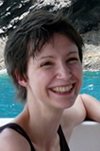
Magdalena Budzowska
Post-Doctoral Fellow
[email protected]
Magda studied biotechnology at Jagiellonian University in Krakow, Poland. She obtained her PhD degree under the supervision of Prof. Roland Kanaar and Prof. Jan Hoeimakers at Erasmus Medical Center in Rotterdam, the Netherlands. During her PhD studies she investigated the roles of Rad17, Mus81, and Rad51AP1 in DNA damage response. She continued the work on Rad51AP1 in the lab of Dr. Mauro Modesti at CNRS in Marseille, France. After that she joined the lab of Prof. Johannes Walter at Harvard Medical School. There she used Xenopus leavis egg extracts to study the mechanism of translesion DNA synthesis during repair of interstrand DNA crosslinks. In July 2015 she joined the lab of Prof. Chuna Choudhary.
Postdoctoral fellow: Department of Biological Chemistry and Molecular Pharmacology, Harvard Medical School, Boston, USA (supervisor, Johannes Walter)
Postdoctoral fellow: Genome Instability and Carcinogenesis Unit, CNRS, Marseille, France (supervisor, Mauro Modesti)
PhD: Erasmus Medical Center, Rotterdam, the Netherlands (supervisors, Roland Kanaar and Jan Hoeijmakers)
MSc: Jagiellonian University, Krakow, Poland (supervisor, Zygmunt Wasylewski)
Publications
Wild T, Budzowska M,, Karemore G, Choudhary C Higher eukaryote-specific APC/C composition is a determinant of spindle assembly checkpoint importance. bioRxiv. 2017.[Article]
Semlow DR, Zhang J, Budzowska M, Drohat AC, Walter JC. Replication-Dependent Unhooking of DNA Interstrand Cross-Links by the NEIL3 Glycosylase. Cell. 2016 Oct 6;167(2):498-511.e14. [Article][Pubmed]
Dewar JM, Budzowska M, Walter JC. The mechanism of DNA replication termination in vertebrates. Nature. 2015 Sep 17;525(7569):345-50. [Article][Pubmed]
Semlow DR, Zhang J, Budzowska M, Graham TG, Sobeck A, Waga S, Walter JC, Regulation of the Rev1-pol ζ complex during bypass of a DNA interstrand cross-link. EMBO J. 2015 Jul 14;34(14)[Article][Pubmed]
Zhang J, Dewar, J.M, Budzowska M, Motnenko A, Cohn M.A, Walter J.C DNA interstrand cross-link repair requires replication-fork convergence. Nat Struct Mol Biol. 2015 Mar;22(3):242-7[Article][Pubmed]
Long D.T., Joukov V., Budzowska M., Walter J.C. BRCA1 promotes unloading of the CMG helicase from a stalled DNA replication fork. Mol Cell. 2014 Oct 2;56(1):174-85.[Article][Pubmed]
Budzowska M,Kanaar R Mechanisms of dealing with DNA damage-induced replication problems. Cell Biochem Biophys. 2009;53(1):17-31[Article][Pubmed]
Hanada K, Budzowska M, Davies SL, van Drunen E, Onizawa H, Beverloo HB, Maas A, Essers J, Hickson ID, Kanaar R The structure-specific endonuclease Mus81 contributes to replication restart by generating double-strand DNA breaks. Nat Struct Mol Biol. 2007 Nov;14(11):1096-104[Article][Pubmed]
Modesti M, Budzowska M, Baldeyron C, Demmers JA, Ghirlando R, Kanaar R RAD51AP1 is a structure-specific DNA binding protein that stimulates joint molecule formation during RAD51-mediated homologous recombination. Mol Cell. 2007 Nov 9;28(3):468-81[Article][Pubmed]
Hanada K, Budzowska M, Modesti M, Maas A, Wyman C, Essers J, Kanaar R The structure specific endonuclease Mus81-Eme1 promotes conversion of interstrand DNA crosslinks into double-strands breaks. EMBO J. 2006 Oct 18;25(20):4921-32[Article][Pubmed]
Budzowska M, Jaspers I, Essers J, de Waard H, van Drunen E, Hanada K, Beverloo B, Hendriks RW, de Klein A, Kanaar R, Hoeijmakers JH, Maas A Mutation of the mouse Rad17 gene leads to embryonic lethality and reveals a role in DNA damage- dependent recombination. EMBO J. 2004 Sep 1;23(17):3548-58.[Article][Pubmed]
Rutzler M, Reissaus A, Budzowska M, Bandlow W SUT2 is a novel multicopy suppressor of low activity of the cAMP/protein kinase A pathway in yeast. Eur J Biochem. 2004 271: 1284-91[Article][Pubmed]
Niedernhofer LJ, Odijk H, Budzowska M, van Drunen E, Maas A, Theil AF, de Wit J, Jaspers NG, Beverloo HB, Hoeijmakers JH, Kanaar R The structure-specific endonuclease Ercc1-Xpf is required to resolve DNA interstrand cross-link-induced double-strand breaks. Mol Cell Biol. 2004 Jul;24(13):5776-87.[Article][Pubmed]
Fellowships
ARC (Association pour la Recherche sur le Cancer) fellowship (2008-2009)
EMBO (European Molecular Biology Organization) fellowship (2010-2010)
HFSP (Human Frontiers Science Program) fellowship (2010-2013)
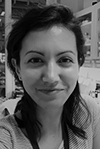
Lidiya Dimova
Post-Doctoral Fellow
[email protected]
Lidiya studied molecular biology at the University of Sofia, Bulgaria. She continued her education in The Netherlands, joining the research TopMaster program Biomolecular sciences at the University of Groningen. There, under the supervision of Prof. Bert Poolman and Prof. Oscar Kuipers, she investigated the cell response to membrane protein overproduction applying transcriptomics and proteomics approaches. With a growing fascination with epigenetics, her PhD work delved into exploring the mechanisms of early life metabolic programming using animal models. With guidance from Prof. Uwe Tietge and Prof. Henkjan Verkade at the Dept. of Pediatrics in the University Medical Center Groningen, she specifically addressed the impact of early life oxidative stress and cholesterol availability on the predisposition to adult cardio-metabolic disease. Her work provided novel mechanistic insights by identifying the key chromatin changes associated with insult exposure and their role in the balance between health and disease. In November 2017 she joined the group of prof. Chuna Choudhary.
Since November 2017: PostDoc at the Novo Nordisk Foundation Center for Protein Research, University of Copenhagen, Denmark
PhD: University Medical Center Groningen, Department of Pediatrics, Section Molecular Metabolism & Nutrition (Uwe Tietge, Henkjan Verkade)
MSc: University of Groningen, Departments of Molecular enzymology (Bert Poolman) and Genetics (Oscar Kuipers), The Netherlands
BSc: Sofia University & Institute for Molecular Biology at the Bulgarian Academy of Sciences (Anastas Gospodinov), Sofia
Publications [Google Scholar]
Dimova LG, de Boer JF, Plantinga J, Plösch T, Hoekstra M, Verkade HJ, Tietge UJF. Inhibiting Cholesterol Absorption During Lactation Programs Future Intestinal Absorption of Cholesterol in Adult Mice. Gastroenterology. 2017 Aug;153(2):382-385.[Article][Pubmed]
Buning J*, Dimova LG*, Perton FG, Tietge UJF, van Beek AP, Dullaart RPF. Downregulation of cholesteryl ester transfer protein by glucocorticoids: a randomised study on HDL. Eur J Clin Invest. 2017 Jul;47(7):494-503.[Article][Pubmed]
Trigueros-Motos L, van Capelleveen JC, Torta F, Castaño D, Zhang LH, Chai EC, Kang M, Dimova LG, Schimmel AWM, Tietjen I, Radomski C, Tan LJ, Thiam CH, Narayanaswamy P, Wu DH, Dorninger F, Yakala GK, Barhdadi A, Angeli V, Dubé MP, Berger J, Dallinga-Thie GM, Tietge UJF, Wenk MR, Hayden MR, Hovingh GK, Singaraja RR. ABCA8 Regulates Cholesterol Efflux and High-Density Lipoprotein Cholesterol Levels. Arterioscler Thromb Vasc Biol. 2017 Nov;37(11):2147-2155. [Article][Pubmed]
Leberkühne LJ, Ebtehaj S, Dimova LG, Dikkers A, Dullaart RP, Bakker SJ, Tietge UJ. The predictive value of the antioxidative function of HDL for cardiovascular disease and graft failure in renal transplant recipients. Atherosclerosis. 2016 Jun;249:181-5.[Article][Pubmed]
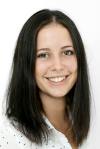
Gabriela Pruś
PhD Student
[email protected]
Gabriela studied biotechnology at the Jagiellonian University, Krakow, Poland. There, she began her adventure with mass spectrometry-based proteomics technologies. She gained experience during internships at MaxPlanck Institute for Biochemistry in Martinsried, Germany and Karolinska University, Stockholm, Sweden. During her Master studies she investigated the antipsychotic drug molecular mechanism of action. In 2017 she was accepted into the CPH Bioscience PhD Programme and joined Chuna Choudhary’s lab. Currently Gabriela is interested in DUB-regulated ubiquitylation signaling.
Since 2017: PhD student in the University of Copenhagen, Denmark
Publications
Kedracka-Krok S, Swiderska B, Bielecka-Wajdman AM, Pruś G, Skupien-Rabian B, Jankowska U, Obuchowicz E. Impact of imipramine on proteome of rat primary glial cells. J Neuroimmunol. 2018 Jul 15;320:25-37.[Article][Pubmed]
Wiśniewski JR, Pruś G. Homogenous Phase Enrichment of Cysteine-Containing Peptides for Improved Proteome Coverage. Anal Chem. 2015 Jul 7;87(13):6861-7. [Article][Pubmed]
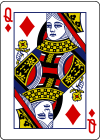
Elina Maskey
Research Technician
[email protected]
MSc. Denmark Technical University, Copenhagen, Denmark
Publications
Gupta R, Somyajit K, Narita T, Maskey E, Stanlie A, Kremer M, Typas D, Lammers M, Mailand N, Nussenzweig A, Lukas J, Choudhary C. DNA Repair Network Analysis Reveals Shieldin as a Key Regulator of NHEJ and PARP Inhibitor Sensitivity. Cell. 2018 May 3;173(4):972-988.e23.[Article][Pubmed]
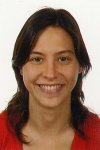
Rebeca Soria Romero
Research Technician
[email protected]
Rebeca studied Technical Education in Pathological Anatomy and Cytology in Madrid, Spain. She worked as laboratory technician in the group of Prof. Oscar Fernández-Capetillo at Spanish National Cancer Research Center being involved in different projects focused on dna damage and mouse models. Later she joined the Lab of Prof. Jeremy A. Daniel at NNF Center for Protein Research in Copenhagen to participate in the study of chromatin function, using the class-switch recombination reaction given specifically in B cells as their main tool. Since 2017 she is working in the group of Prof. Chuna Choudhary.
Since 2013 : Laboratory Technician at Novo Nordisk Foundation Center for Protein Research
2009: Radioactive Facilities Operator Course, Infocitec (Madrid, Spain)
2009: Animal Experimentation Course Category B at CNIO (Madrid, Spain)
2006-2013: Laboratory Technician at Spanish National Cancer Research Centre (Madrid, Spain)
2006: Certificate of Higher Technical Education in Pathological Anatomy and Cytology (Madrid, Spain)
Publications
Hansen RK, Mund A, Poulsen SL, Sandoval M, Klement K, Tsouroula K, Tollenaere MA, Räschle M, Soria R, Offermanns S, Worzfeld T, Grosse R, Brandt DT, Rozell B, Mann M, Cole F, Soutoglou E, Goodarzi AA, Daniel JA, Mailand N, Bekker-Jensen S. SCAI promotes DNA double-strand break repair in distinct chromosomal contexts. Nat Cell Biol. 2016 Dec;18(12):1357-1366. [Article][Pubmed]
Starnes LM, Su D, Pikkupeura LM, Weinert BT, Santos MA, Mund A, Soria R, Cho YW, Pozdnyakova I, Kubec Højfeldt M, Vala A, Yang W, López-Méndez B, Lee JE, Peng W, Yuan J, Ge K, Montoya G, Nussenzweig A, Choudhary C, Daniel JA. A PTIP-PA1 subcomplex promotes transcription for IgH class switching independently from the associated MLL3/MLL4 methyltransferase. Genes Dev. 2016 Jan 15;30(2):149-63. [Article][Pubmed]
Murga M*, Campaner S*, Lopez-Contreras AJ, Toledo LI, Soria R, Montaña MF, D'Artista L, Schleker T, Guerra C, Garcia E, Barbacid M, Hidalgo M, Amati B, Fernandez-Capetillo O. Exploiting oncogene-induced replicative stress for the selective killing of Myc-driven tumors. Nat Struct Mol Biol. 2011 Nov 27;18(12):1331-5. [Article][Pubmed]
Toledo LI, Murga M, Zur R, Soria R, Rodriguez A, Martinez S, Oyarzabal J, Pastor J, Bischoff JR, Fernandez-Capetillo O. A cell-based screen identifies ATR inhibitors with synthetic lethal properties for cancer-associated mutations. Nat Struct Mol Biol. 2011 Jun;18(6):721-7. [Article][Pubmed]
Murga M, Bunting S, Montaña MF, Soria R, Mulero F, Cañamero M, Lee Y, McKinnon PJ, Nussenzweig A, Fernandez-Capetillo O. A mouse model of ATR-Seckel shows embryonic replicative stress and accelerated aging. Nat Genet. 2009 Aug;41(8):891-8.[Article][Pubmed]
Toledo LI, Murga M, Gutierrez-Martinez P, Soria R, Fernandez-Capetillo O. ATR signaling can drive cells into senescence in the absence of DNA breaks. Genes Dev. 2008 Feb 1;22(3):297-302. [Article][Pubmed]
Toledo LI, Murga M, Zur R, Soria R, Rodriguez A, Martinez S, Oyarzabal J, Pastor J, Bischoff JR, Fernandez-Capetillo O. A cell-based screen identifies ATR inhibitors with synthetic lethal properties for cancer-associated mutations. Nat Struct Mol Biol. 2011 Jun;18(6):721-7. [Article][Pubmed]
Murga M, Jaco I, Fan Y, Soria R, Martinez-Pastor B, Cuadrado M, Yang SM, Blasco MA, Skoultchi AI, Fernandez-Capetillo O. Global chromatin compaction limits the strength of the DNA damage response. J Cell Biol. 2007 Sep 24;178(7):1101-8.[Article][Pubmed]
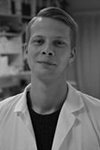
Bo Karbech Hansen
Research Assistant
[email protected]
MSc in Molecular Biology, University of Aarhus, Denmark
Alumini
Investigator, Goethe University hospital, Frankfurt, Germany
Petra Beli, Postdoc (2010-2013)
Group Leader, IMB Mainz, Germany Link to the lab HP
Wai Chu Kit, Postdoc (2012-2014)
Group Leader & Assistant Professor, Chinese University of Hongkong Link to the lab HP
Christian Scholz, Postdoc (2012-2014)
Group Leader, Ludwig-Maximilians-University (LMU), Munich, Germany
E-ri Maria Sol, Postdoc (2010-2013)
Patent Examiner at Danish Patent and Trademark Office, Denmark
Peter Henriksen, PhD student (2009-2012)
Vytautas Iesmatavicius, PhD student (2012-2016)
Postdoctoral fellow, Friedrich Miescher Institute, Basel, Switzerland
Shankha Satpathy, PhD student (2013-2017)
Postdoctoral fellow, Broad Institute, Boston, USA
Maibrit Mardahl, Master thesis student (2011)
Trine Kristensen, Bachelor thesis student (2013)
PhD. Student, Lund University, Sweden
